Travesty of Justice: India court upholds hijab ban in schools, colleges
A high court in the southern Indian state of Karnataka has upheld a government order banning Muslim girls from wearing hijab inside schools, saying the headscarf is not “essential” to Islam.
The landmark verdict came Tuesday after a months-long controversy over the Islamic headscarf, which was sparked by a local college’s decision in January to bar entry to hijab-clad Muslim students.
The matter had reached the state’s high court after Muslim women protesters filed petitions arguing that the country’s constitution guaranteed them the right to observe hijab.
The court, however, dismissed their pleas, saying that the Bharatiya Janata Party-run state government in Karnataka had the right to prescribe uniforms for students.
A judge, who first heard the case, had on February 9 referred it to a larger bench, citing the complexity of the case and the "enormity" of questions being considered.
The larger bench passed a controversial interim order saying that students could not wear religious clothing - including the headscarf - until the final verdict was issued.
It forced hijab-wearing students in the government-run schools to miss their classes and even examinations as the case were being heard.
"We are of the considered opinion that the prescription of school uniform is only a reasonable restriction constitutionally permissible which the students cannot object to," Ritu Raj Awasthi, the chief justice of Karnataka high court said in the ruling.
Ahead of the verdict on Monday, authorities in the southern Indian state-imposed restrictions on large gatherings and ordered the closure of educational institutions to prevent protests.
The ruling is likely to be challenged in the Supreme Court, according to reports.
How controversy erupted
The controversy erupted last December in Karnataka's Udupi district after a government-run college prevented six Muslim students entry into a classroom for wearing the hijab.
The girl students protested over what they believed was the violation of their right to religious freedom, guaranteed under Article 25 of the Indian Constitution.
It led to protests across the southern Indian state, as well as the national capital New Delhi, as more schools moved to implement a similar ban on the hijab under the pressure of radical Hindu groups.
The right-wing government in Karnataka then issued an order in support of the school’s ban on hijab.
In a circular, it directed schools and colleges in the state to strictly enforce a uniform dress code. In response, one of the students filed a legal petition arguing that wearing the headscarf was a fundamental right to religion guaranteed by the Indian constitution.
The opponents of the ban contend the issue pertains to freedom of conscience and free profession, practice, and propagation of religion enshrined in Article 25 of the Indian Constitution.
Did the court have anything to say on the way Muslim women were bullied and heckled into taking off their hijabs? The way little girls were stopped from going to school until they took off their head scarves at the gate?
— Nidhi Razdan (@Nidhi) March 15, 2022
The issue has further polarized the Indian society, with fault lines between the majority Hindu and minority Muslim community in the country terrifyingly widening.
The toxicity of hate and hostility toward Muslims, who make up around 14 percent of the country’s 1.4 billion population, threatens to tear apart the fabric of India’s secular democracy, believe experts.
Polarization of society
The controversy has further polarized the society on communal lines in Karnataka, with many seeing it as an attempt by the Hindu nationalist government in New Delhi to marginalize minority Muslims.
"We can't take off the hijab, we won't take off the hijab. We have fifth-semester exams next month. We will have to sit that out unless things change by then," Ayesha Imtiaz, a third-year undergraduate student from the district of Udupi, was quoted as saying after the ruling came out.
The Students Islamic Organisation of India (SIO), which represents thousands of Muslim students across the country, said they feared that Tuesday's verdict would encourage more states to ban the hijab in class.
"We don't want it to set a national precedent and we want it overturned, the court verdict might encourage more states to ban it. So in all likelihood, we will approach the Supreme Court," national secretary Musab Qazi was quoted as saying.
Muslim politicians, including the former chief ministers of Jammu and Kashmir Mehbooba Mufti and Omar Abdullah, called the verdict "deeply disappointing".
"On one hand we talk about empowering women yet we are denying them the right to a simple choice, it isn’t just about religion but the freedom to choose," Mufti wrote on Twitter.
Karnataka HC’s decision to uphold the Hijab ban is deeply disappointing. On one hand we talk about empowering women yet we are denying them the right to a simple choice. Its isn’t just about religion but the freedom to choose.
— Mehbooba Mufti (@MehboobaMufti) March 15, 2022
Asaduddin Owaisi, a prominent Muslim lawmaker from the southern state of Andhra Pradesh, said the judgment “violates fundamental rights like freedom of religion, culture, expression”
1. I disagree with Karnataka High Court's judgement on #hijab. It’s my right to disagree with the judgement & I hope that petitioners appeal before SC
— Asaduddin Owaisi (@asadowaisi) March 15, 2022
2. I also hope that not only @AIMPLB_Official but also organisations of other religious groups appeal this judgement...
“I disagree with Karnataka High Court's judgment on hijab. It’s my right to disagree with the judgment and I hope that petitioners appeal before SC (supreme court)," he said in a tweet. "I also hope that not only @AIMPLB_Official but also organizations of other religious groups appeal this judgment as it has suspended fundamental rights to freedom of religion, culture, freedom of speech and expression."
Recently, an Indian actor and activist Chetan Kumar Ahimsa had been arrested for posting a tweet criticizing one of the judges hearing pleas against the ban on hijab in Karnataka schools.
The police action came a week after Kumar in a Twitter post dated February 16 questioned whether Justice Krishna Dixit had “the clarity required” to oversee the hijab row case after having previously made “disturbing comments” in a rape case.
Opposition parties accuse the BJP government at federal and state levels of discriminating against religious minorities. The trend has assumed alarming proportions since Modi’s election in 2014.
Zionist captive dies after being wounded in Israeli airstrikes: Hamas
VIDEO | Iraqi fighters stage cruise missile strike against Israeli airbase
VIDEO | Venice Art Biennale focuses on Palestine, Gaza
World support for Palestine's UN membership bid shows Israel’s full isolation: Iran
VIDEO | Incursion into East Rafah
VIDEO | British role in Gaza
Houthi: West occupies Muslim countries under pretext of fight against terror
US police tear-gass students, arrest dozens as Gaza war protests spread


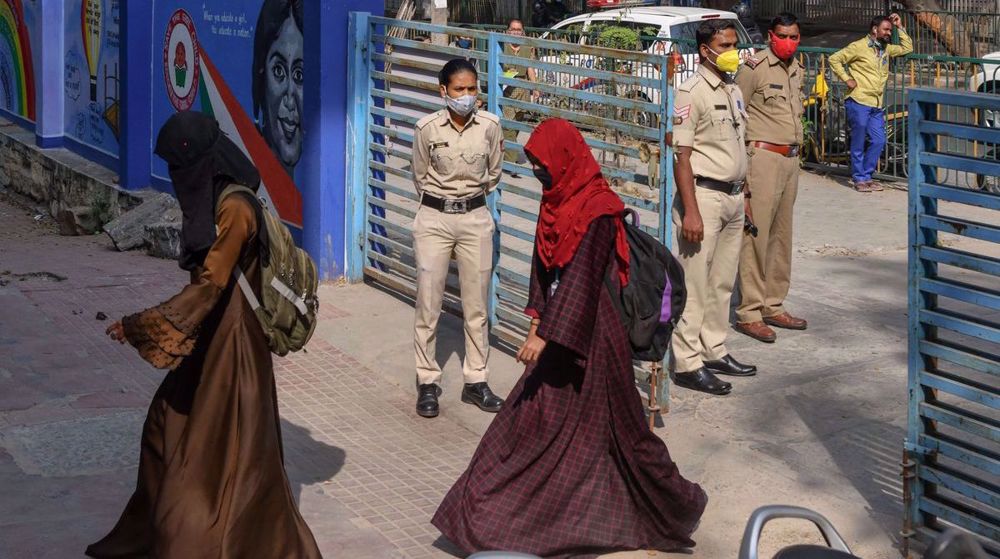
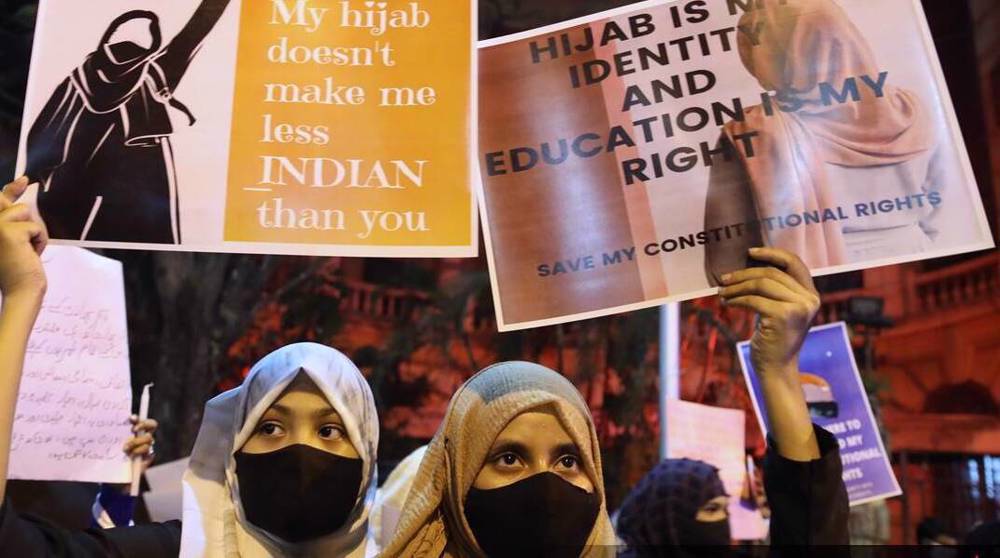
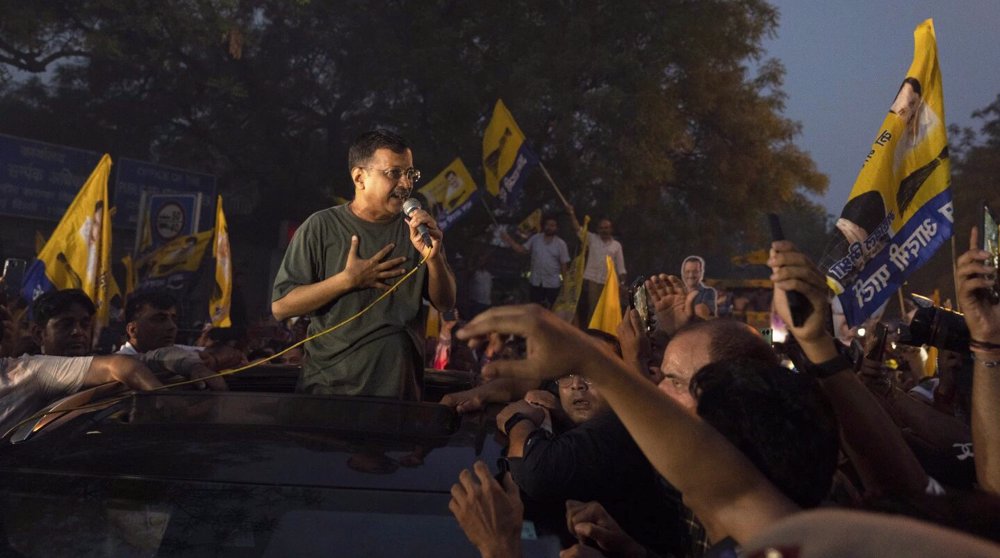
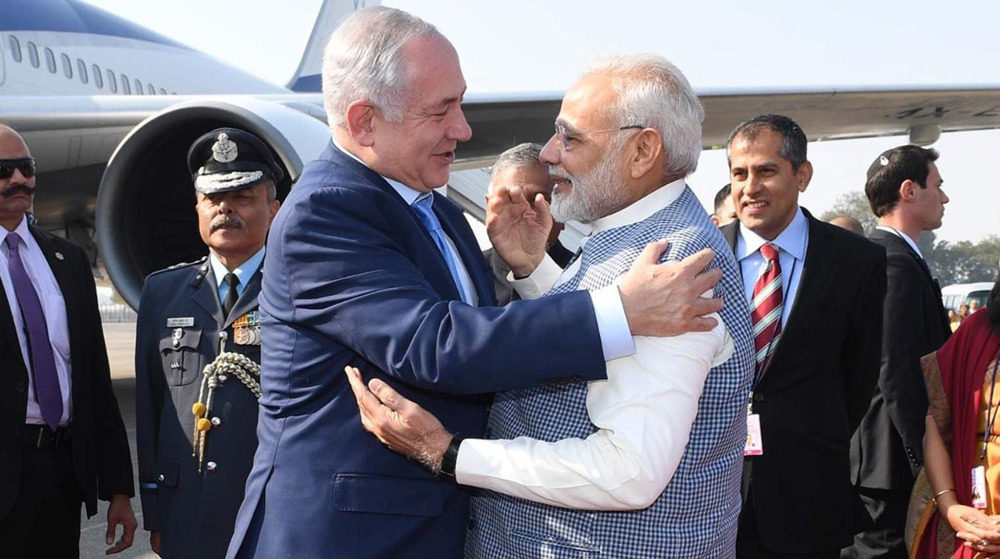
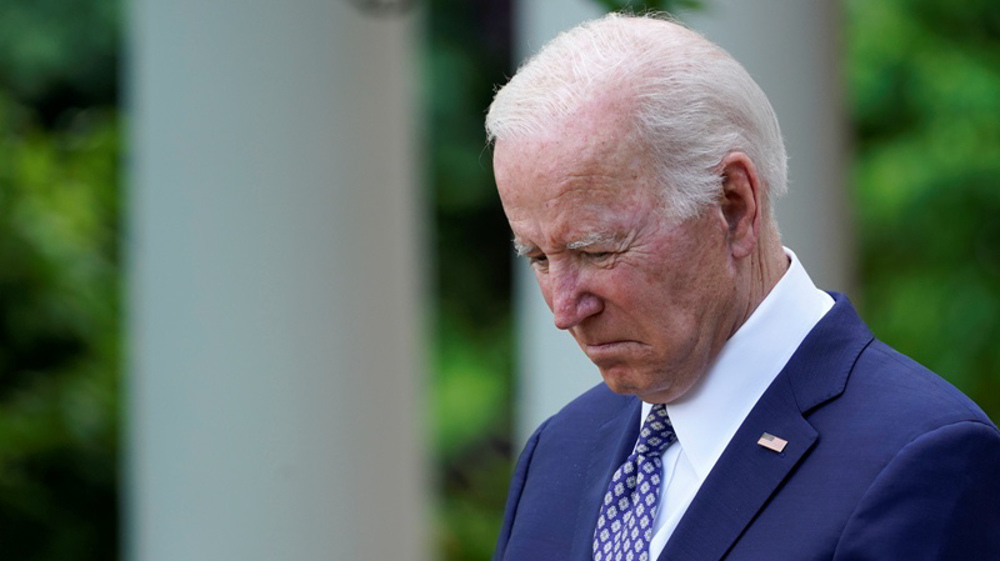



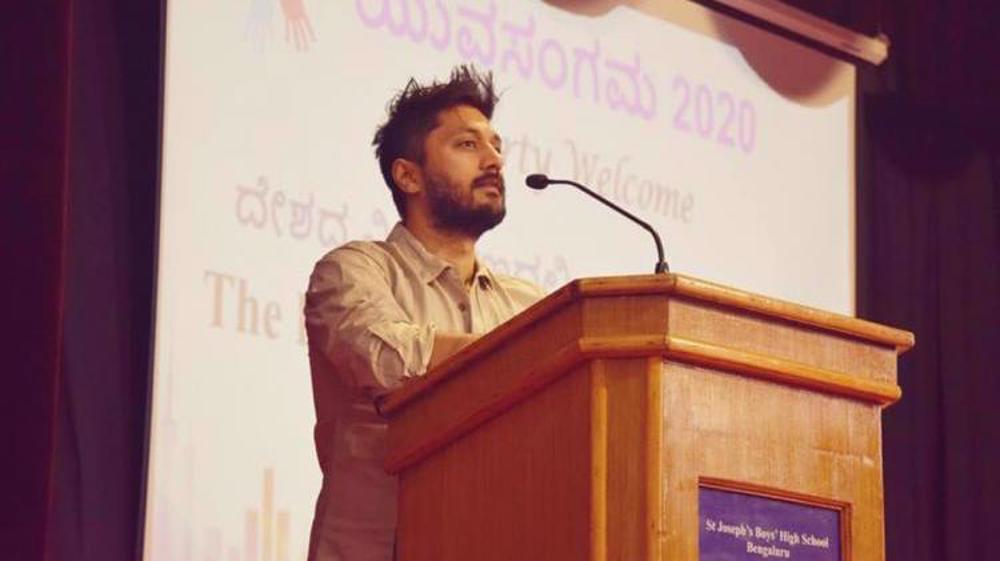
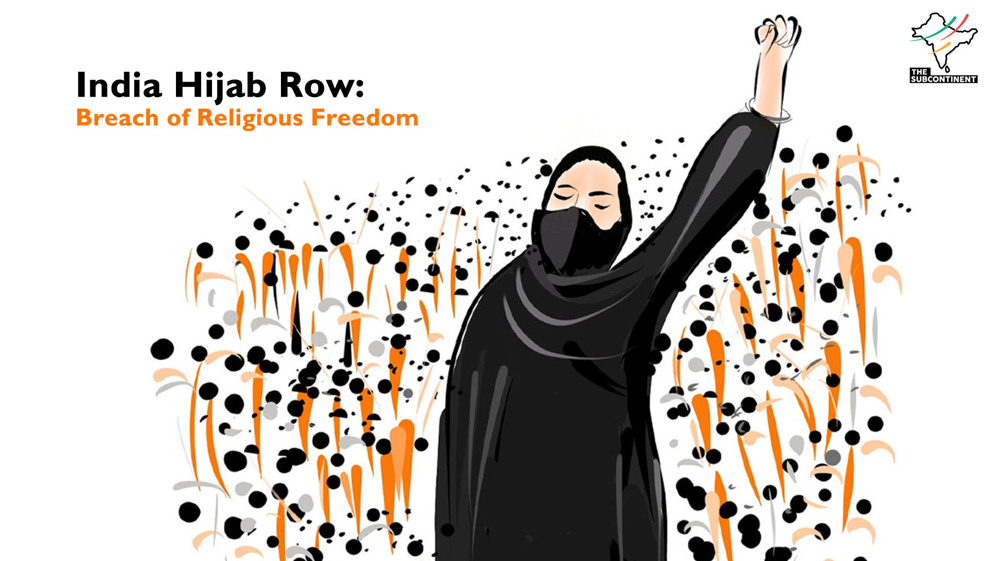
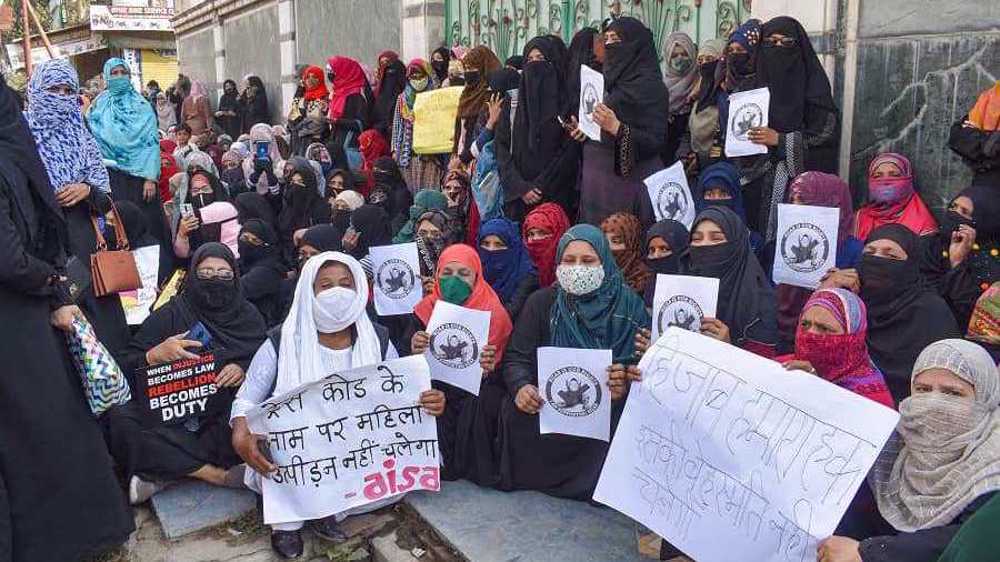
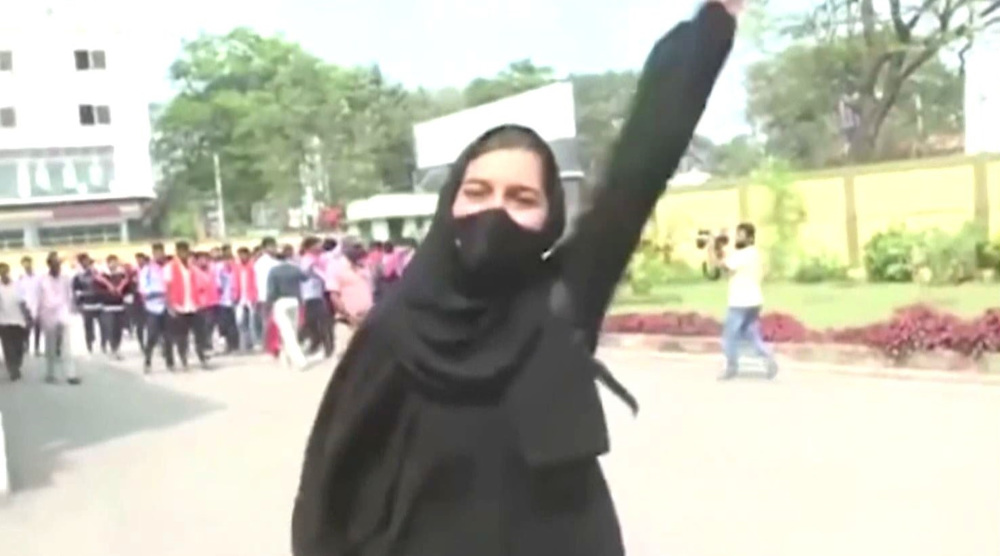
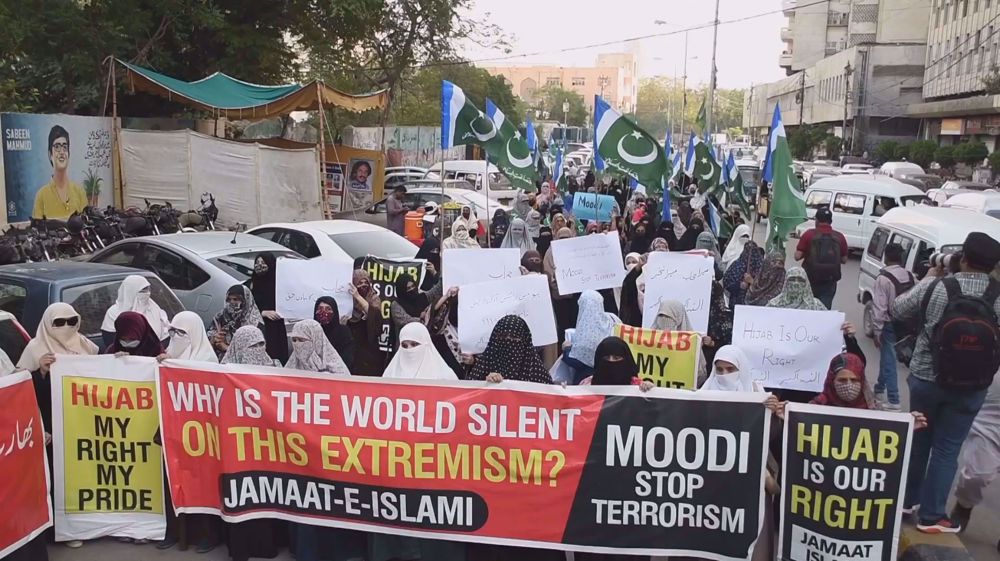

 This makes it easy to access the Press TV website
This makes it easy to access the Press TV website